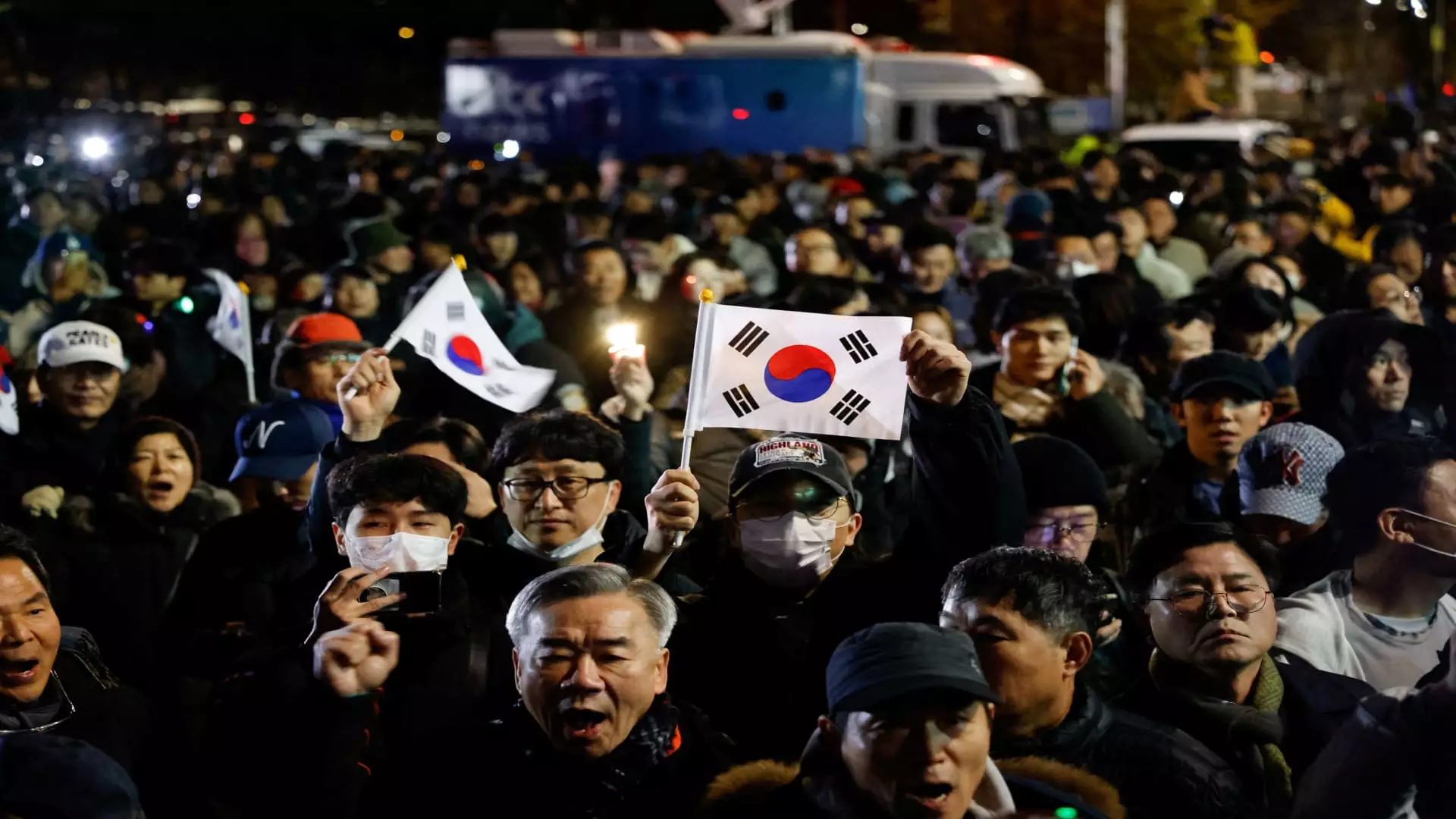The political landscape of South Korea has taken a tumultuous turn following South Korean President Yoon Suk Yeol’s controversial attempt to impose martial law. This attempt has not only led to widespread public unrest but has also thrust the nation into a constitutional crisis, undermining the efficacy of democratic governance. Recent revelations indicate that the nation’s leadership is not just grappling with dissent from the populace but also from within the ranks of its military and political institutions. The implications of these actions extend beyond immediate political instability, threatening the very foundation of South Korea’s democracy.
President Yoon’s failed declaration of martial law marks a significant moment of distress during his administration. His hasty decision to bestow extraordinary powers upon the military to suppress what he termed “anti-state forces” drew immediate backlash from both politicians and the populace. The parliamentary defiance, which resulted in a unanimous vote against his decree, showcased the strength of an opposing political force that had long been sidelined. Notably, this was not just a momentary setback; rather, it unveiled deeper issues regarding Yoon’s leadership style and the democratic structures in place.
The fallout from Yoon’s actions has been nothing short of explosive. Following the martial law stint, public calls for his resignation have grown louder. Political opponents have rallied around the narrative that Yoon is unfit to lead, citing the martial law attempt as a critically dangerous maneuver that could lead to authoritarianism. In response to this growing sentiment, the ruling People Power Party (PPP) has sought to establish a task force to navigate the waters of political stabilization in the aftermath of this crisis. The establishment of this task force is indicative of a governing party struggling to maintain control and credibility amidst a leadership crisis.
Calls for Yoon’s impeachment have prevailed, notably from the main opposition Democratic Party, which has stood firmly against the president’s authority to control military operations. Their insistence on stripping Yoon of military powers reveals a deeper concern regarding civilian oversight of the military. The political implications of Yoon’s failed martial law attempt have surfaced, exposing vulnerabilities within the military apparatus and showcasing the fragility of civil-military relations in South Korea.
Legally, Yoon’s situation is precarious. The country’s justice ministry has reportedly placed a travel ban on him, indicating the serious nature of the investigations surrounding his actions. While some may posit that he retains the moniker of ‘Commander in Chief’, the credibility of his authority has undeniably been challenged. Moreover, the establishment of investigations by the Corruption Investigation Office for High-ranking Officials indicates an escalating crisis that transcends mere political discontent. With allegations of treason surfacing, the potential legal ramifications for Yoon could escalate, paving the way for further unrest.
Additionally, questions arise concerning the delegation of Yoon’s powers to Prime Minister Han Duck-soo. While this move is seen as a temporary solution to manage governance, it raises critical constitutional questions. Unlike some democratic systems that vest significant powers in the vice president, South Korea’s Prime Minister does not possess an electoral mandate from the citizenry, leading to debates about the legitimacy and effectiveness of this governance model. This conundrum could bode ill for the stability of governance moving forward.
The political instability coincides with pressing economic concerns for South Korea, which is a critical player in the global supply chain, particularly in sectors like semiconductor manufacturing. Opposition leader Lee Jae-myung’s warnings about the irreversible impact of this crisis on the economy further amplify the urgency for resolution. The finance ministry, in response to this turbulent political climate, has commited to stabilizing financial markets, illustrating the interconnectedness of political stability and economic health.
As the nation grapples with these evolving challenges, geopolitical considerations remain paramount. The timing of Yoon’s martial law attempt coincides with heightened tensions in the region, particularly with North Korea’s escalated military cooperation with Russia. The international response from U.S. officials illustrates concern regarding the South Korean administration’s ability to maintain order and uphold democratic principles in a volatile geopolitical environment.
The leadership crisis resulting from President Yoon Suk Yeol’s controversial actions has laid bare the fragilities of South Korea’s democratic institutions. The intertwining of political discontent, military dissent, legal challenges, and economic uncertainty indicates that the ramifications of this crisis will be felt for some time. Ultimately, the resolution of this crisis will not merely necessitate a shift in leadership but will require a robust reassessment of the relationship between military power and civilian authority, the legitimacy of political governance, and the efficacy of South Korea’s democratic processes in the face of adversity.


Leave a Reply